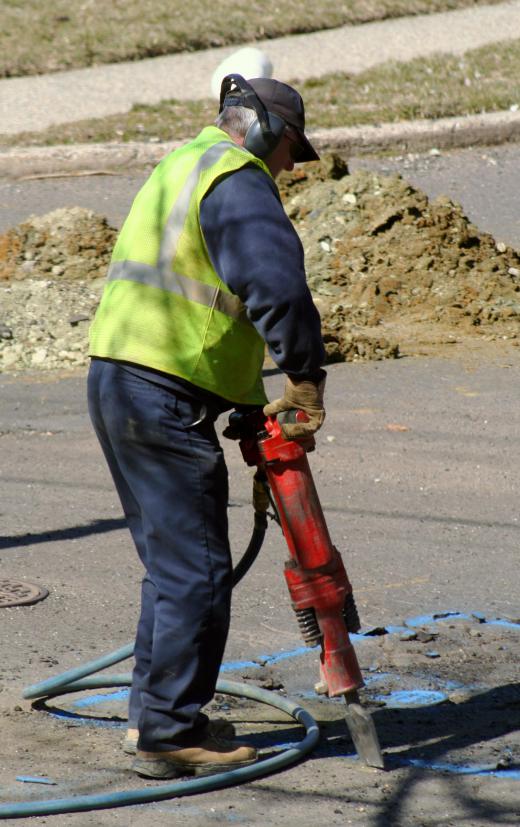A jackhammer is typically a portable drill powered by compressed air, though other models exist. It has two handles on one end and a chisel-like bit on the other that rapidly jabs up and down to break up concrete, rock, or other materials. The tool is connected to an air compressor by a pneumatic hose.
A portable jackhammer is only practical to use on a horizontal surface. Gravity serves both to keep the tool in place and to drive the bit into the surface. The jackhammer must be held on one end by a worker, who guides the drill over the material to be broken up. It is not advisable to bear down, as doing so can cause injury.

A jackhammer may also be hydraulic, powered by fluid rather than air. This type is much larger than the type described above and is usually attached to an excavator, a heavy earthmoving vehicle. This type of jackhammer may be used vertically in mining, as the opposite side of the cavern can provide a similar opposing force to that offered by gravity in horizontal applications.
A third type of jackhammer is smaller than the pneumatic type and powered by electricity. This tool can be rented and is most often used by amateurs for small-scale projects.

Like many heavy construction tools, the jackhammer carries some risks for the worker controlling it and must be used with care. The pneumatic jackhammer is extremely loud, reaching 100 decibels at 2 meters (6.6 feet). Some models are equipped with a silencer, but the operator still must wear protective earmuffs to prevent tinnitus and other hearing damage. The rough vibration of the tool poses danger to the hands and wrists, sometimes leading to carpal tunnel syndrome or an acquired form of Raynaud's disease known as vibration white finger.

